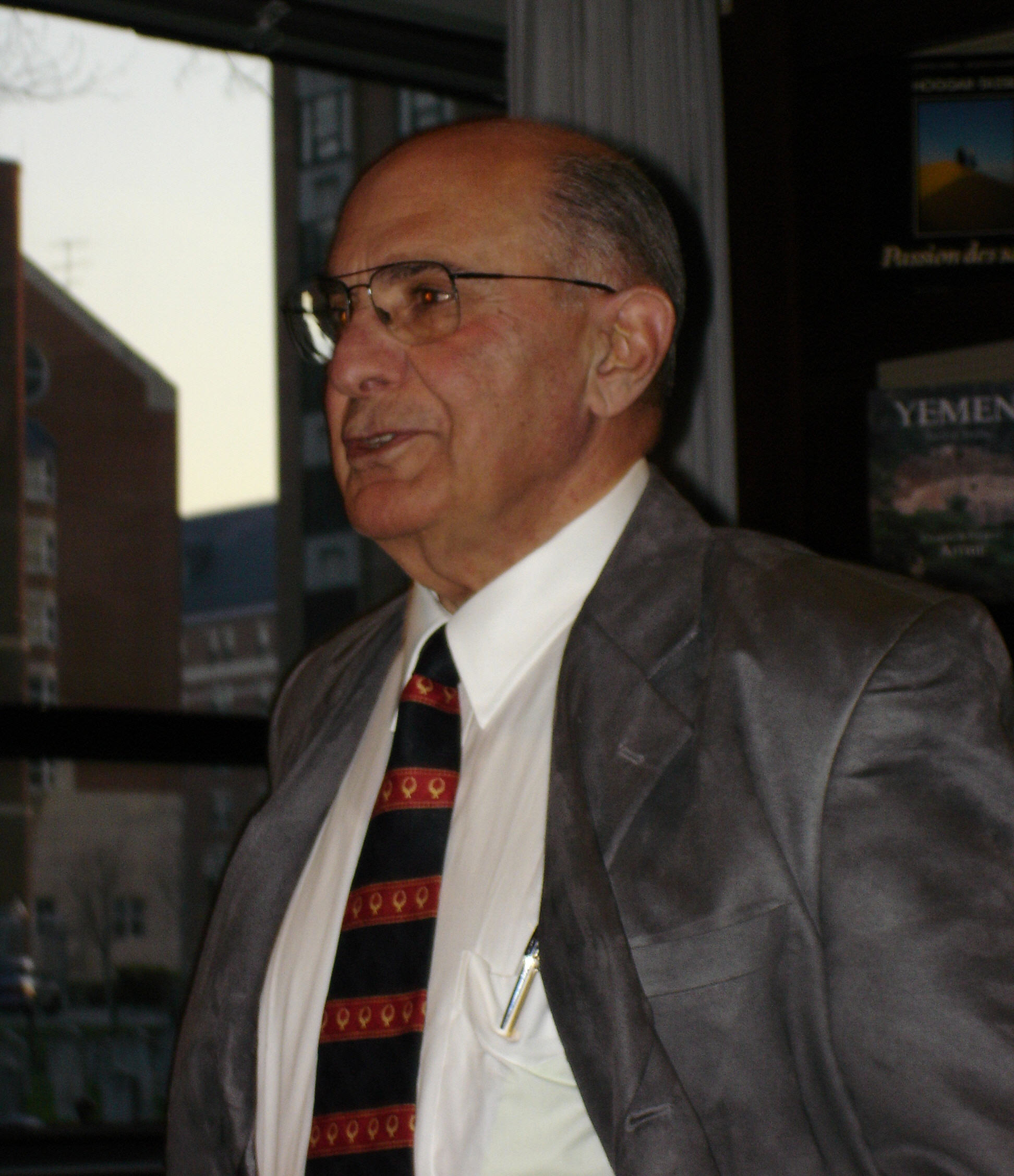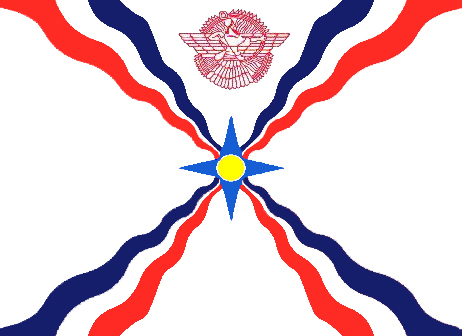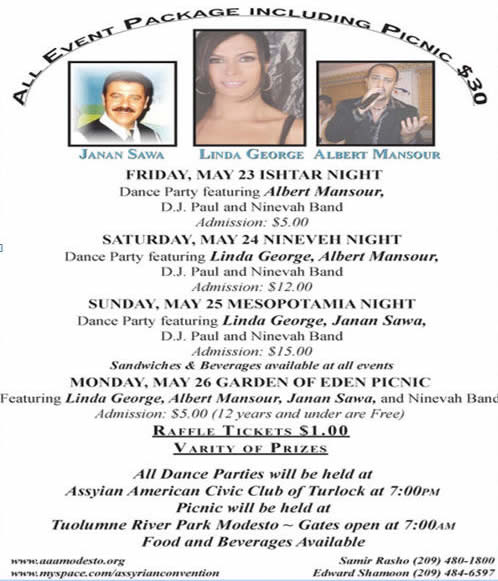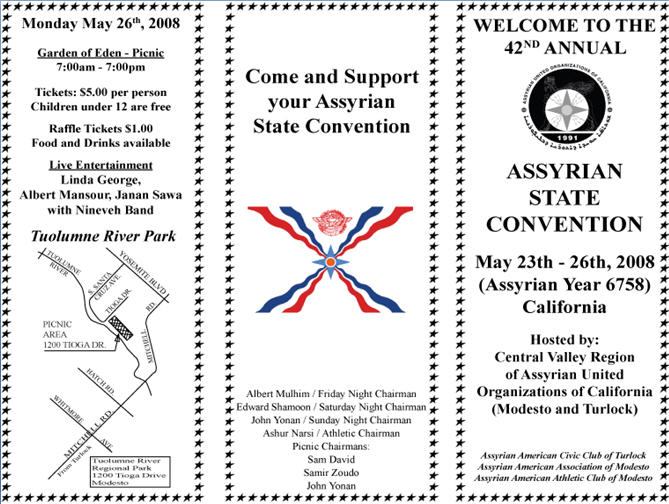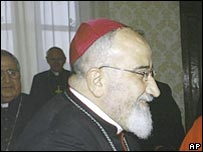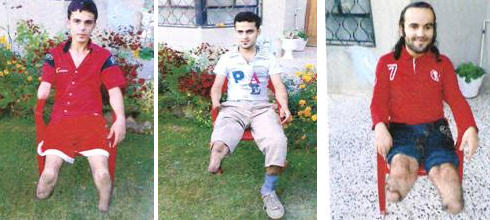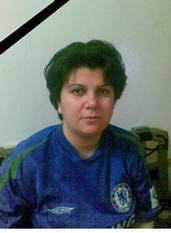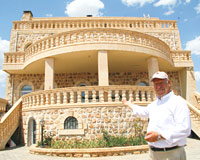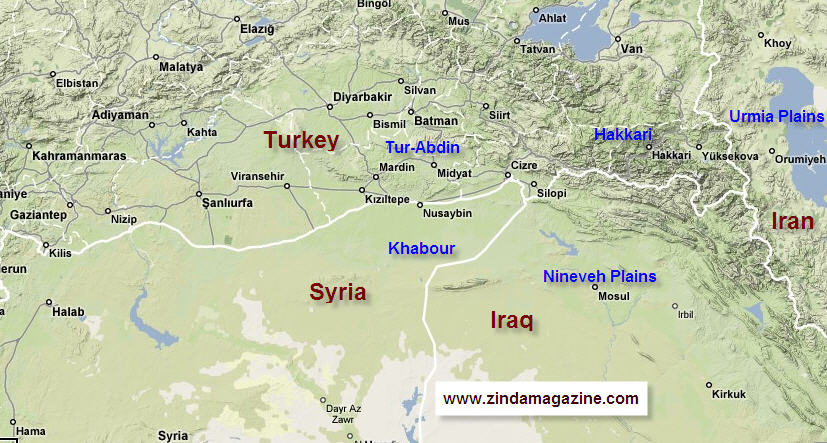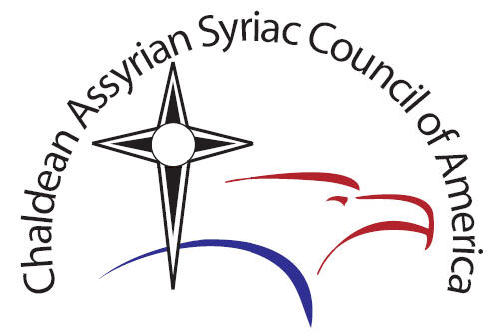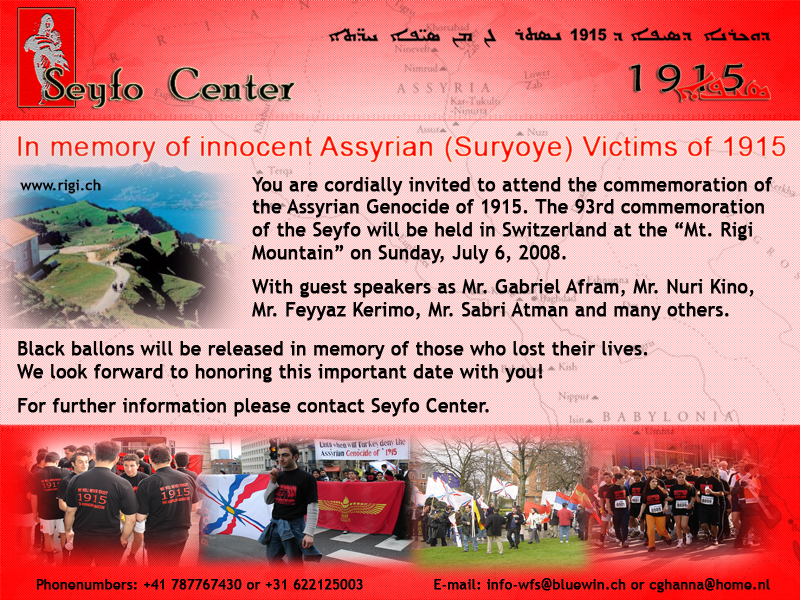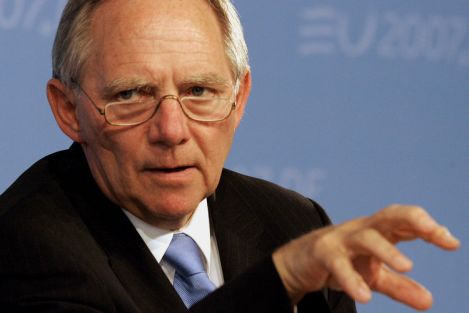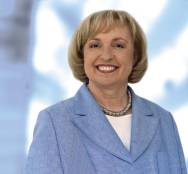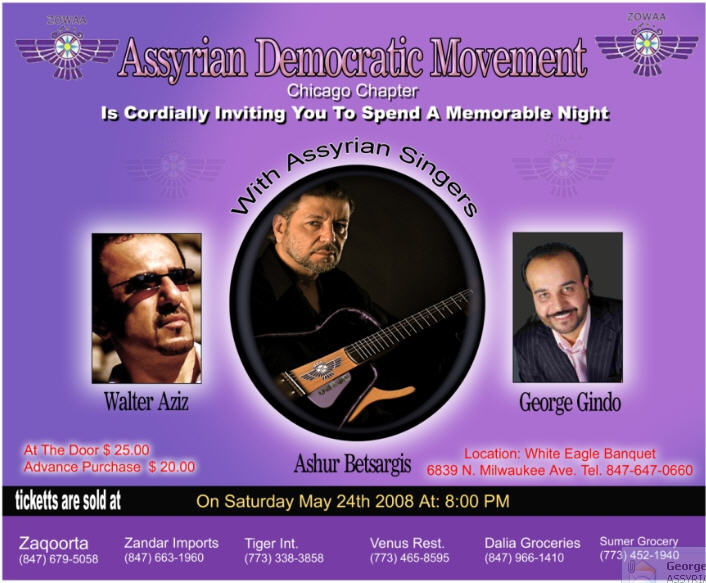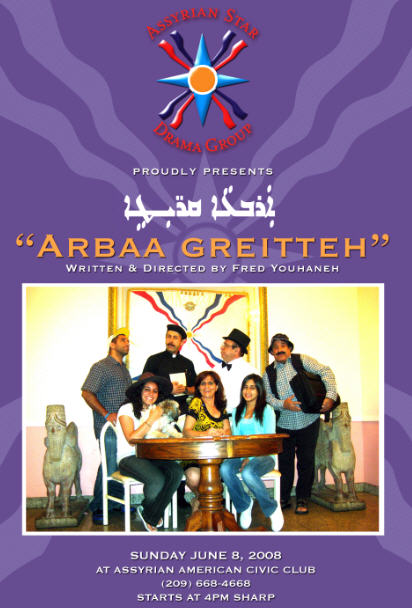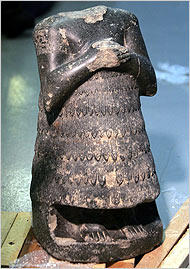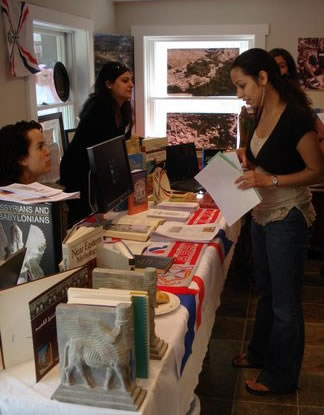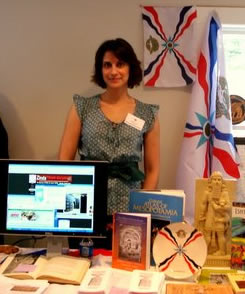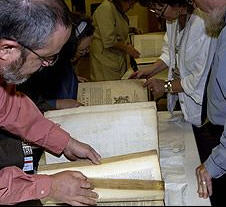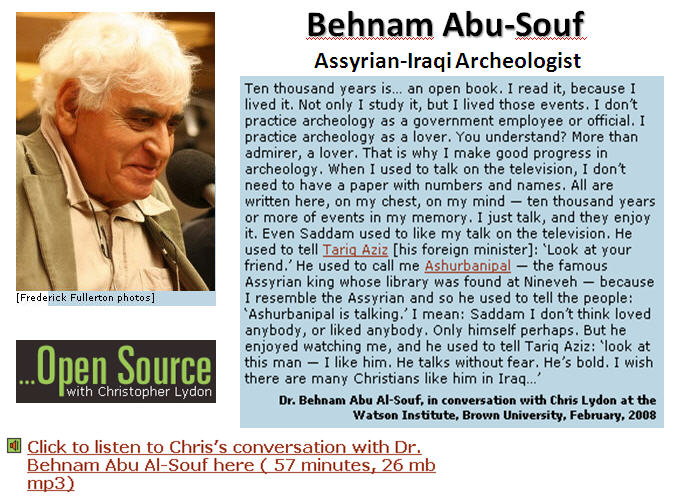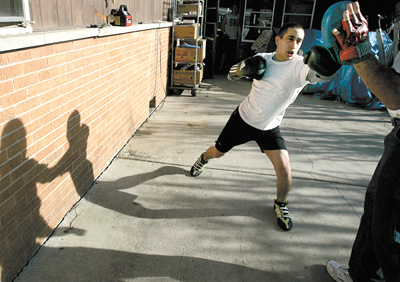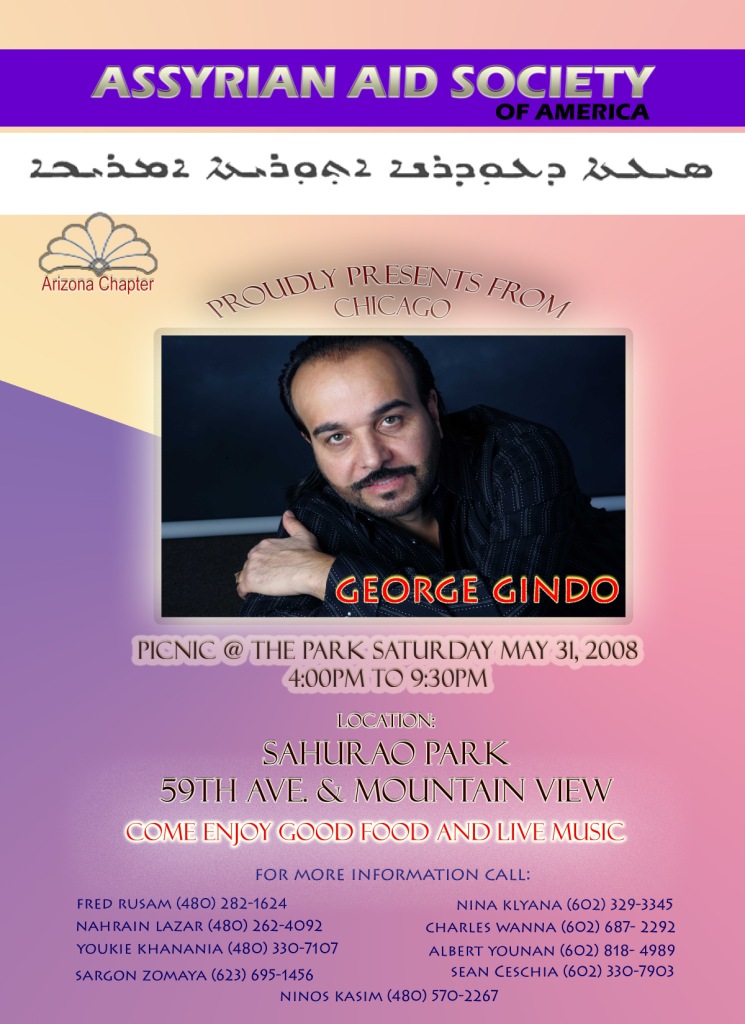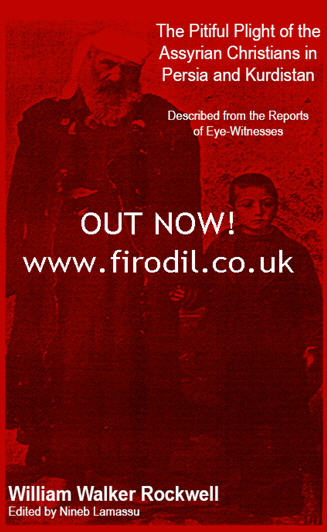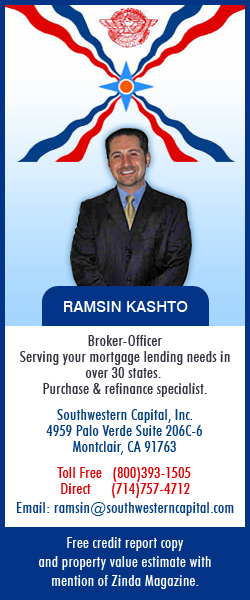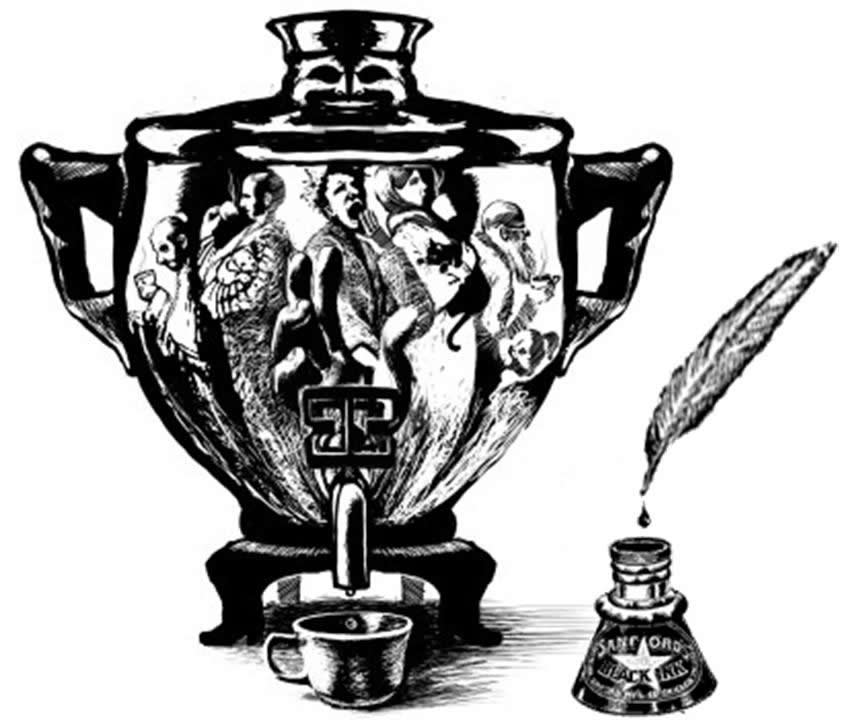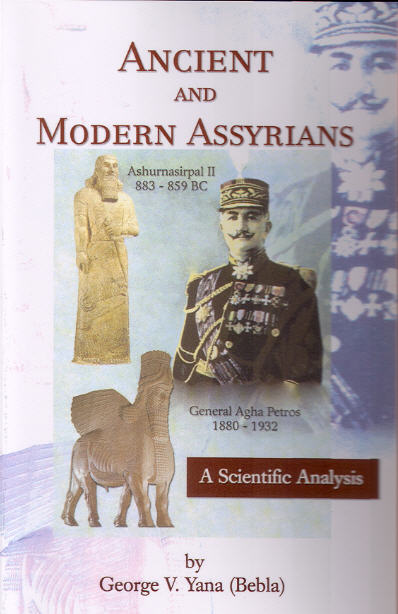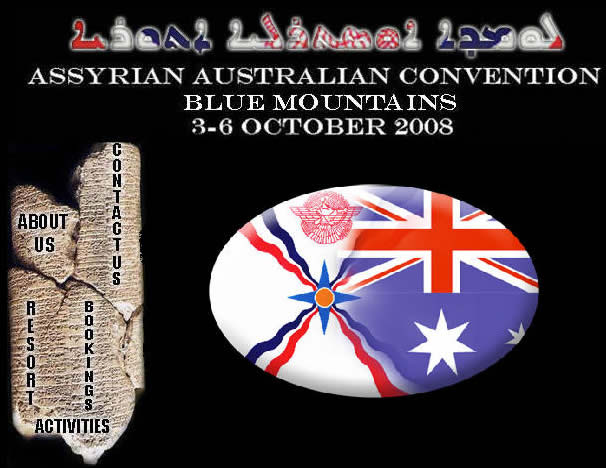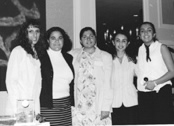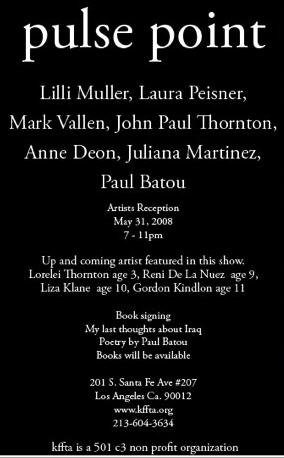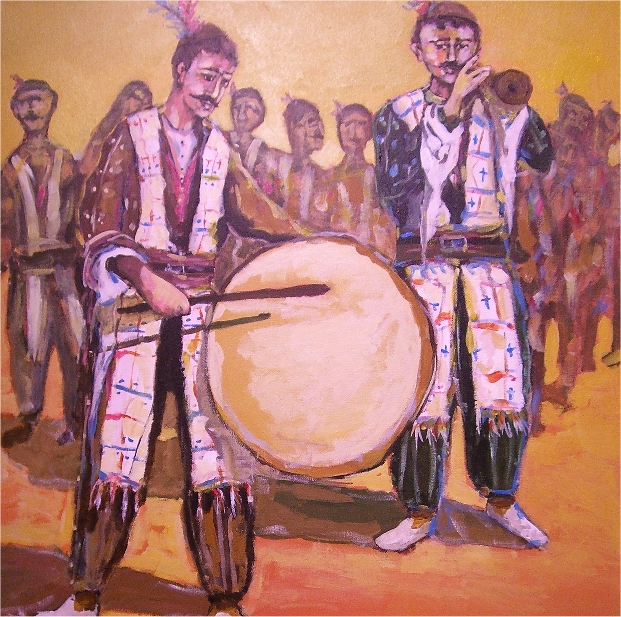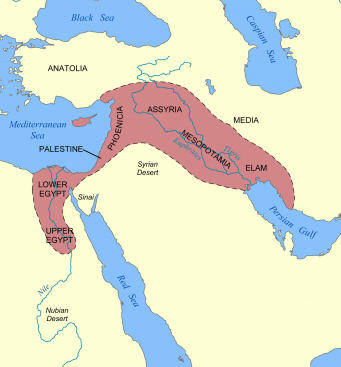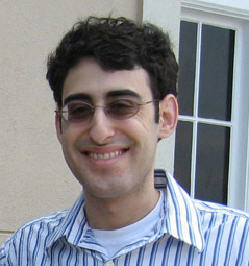Samuel Hazo, Lebanese-Assyrian &
State Poet Laureate of Pennsylvania
Stan Shabaz
Washington, DC
“My father’s father hunted porcupines
A rifleshot from Nineveh and Eden.” [1]
Background:
Samuel John Hazo is a prominent figure in contemporary American literature. He was chosen the first and only State Poet Laureate of the Commonwealth of Pennsylvania by Governor Robert Casey in 1993, a position which he held until his resignation in 2003. He is the author of numerous novels, essays, plays and poems. He is also the director of the International Poetry Forum [2] in Pittsburgh, Pennsylvania.
Hazo is a native of Pittsburgh. His parents Sam Hazo and Lottie (Abdou) Hazo were of Assyrian (his father) and Lebanese (his mother) ancestry. In reviewing Hazo’s works, Mary Zoghby, writes that:
“Hazo’s Middle Eastern heritage is reflected in family poems: “A city Made Sacred Because Your Son’s Grandfather Died In It,” “Those Who Have Gone Before but Stay,” “To My Mother,” and others. His ethnicity is evident in many of the poems."[3]
This is also seen in this extract from his poem “For Fawzi in Jerusalem” where he describes a journey familiar and relevant to many immigrants from the Near East:
“Leaving a world too old to name
and too undying to forsake
I flew the cold, expensive sea
toward Columbus’ mistake
where life could never be the same” [4]
The Hyphenated American
Yet Hazo himself cautions us against the concept of the hyphenated American and the potential that excessive ethnic identification might descend into chauvinism and polarization. [5] In his essay, “What Makes us American? We Must Rise above Hyphenations for a Mature Understanding”, he writes:
Who, for example, refers to Thomas Jefferson as our great Welsh-American president? Or to Theodore and Franklin Roosevelt as Dutch-American presidents? Or to Lincoln as our English-Scottish-and-possibly-American Indian president?
…Suffice it to say that ethnic and racial identities will continue to be part of the woof of American life, and, to the extent that they do not translate into chauvinism or mindless tribalism, this is to be expected.
Nonetheless, the only thing that can prevent ethnicity or race from chauvinism or tribalism is a transcendent political identity. In the United States, this has always been equated with constitutional allegiance.
…As much as ethnicity has contributed to the quilting of America and a unique and wholesome multiplicity of customs and cuisines that we can rightly enjoy and even brag about, it assumes, as does religion, a different character when it becomes politicized. It becomes estranged from its true nature.
When politicians and pollsters begin addressing themselves to blocs of voters defined only by heritage or race of whatever stripe, they are not doing the political process a favor. And voters who respond to such pandering merely aid and abet this regression.
…Archibald MacLeish once wrote that being an American is difficult, and he was right. Being an American is never equatable with George C. Scott as Gen. Patton hectoring in front of a flag the size of the Bronx. It implies a mature understanding of constitutional principles, the Bill of Rights and other charters upon which the civility of our public life is based. It implies a poetic vision like Whitman's or Hart Crane's or Robert Frost's of the country's real destiny.
These are not matters that can be reduced to cheerleading hyphenations of any kind. Nor can they flourish without being given our total attention and allegiance in theory and, above all, defiantly in practice. The office of citizen requires no less. [6]
Influence of his Family, Ancestry and Ethnicity
Despite this cautionary note, Hazo’s Lebanese and Assyrian ancestries have still made their way into his works. For example, in his poem, “Progenitor”, he writes about his Assyrian grandfather:
A stern, mustachioed Assyrian
Who stalked the animals that Adam named
And searched the desert where the chariots
And all the legions of Sennacherib
Advanced their blazonry toward the sea,
My father’s father hunted porcupines
A rifleshot from Nineveh and Eden.
I know him only from my father’s tales,
This Aramaic sire who brought his sons
Beyond the havoc of the scimitar
By mule from Mosul to Jerusalem
And somehow I lived a century and ten
Before he died and left his youngest son
This son to hymn his bones in Babylon. [7]
Likewise, he wrote this poem for his Lebanese grandfather, “For My Grandfather”:
Someone should speak a word for you
Who after all lived only long
Enough to teach us children’s songs
In Arabic remembered now
With times you strung your lute alone
And plucked it with an eagle’s plume
While we sat quiet, small and calm
And heard you sing of Lebanon
Until our days of roundelays
Turned brief as breathing, and the vengeance
Of cathedrals tolled to silence
All your love and all your minstrelsy.
Hazo’s mother died when he was very young and that loss greatly impacted his life. He wrote the poem “To My Mother”:
Had you survived that August Afternoon
Of sedatives, you would be sixty-three,
And I would not be rummaging for words
To plot or rhyme what I would speak to you.
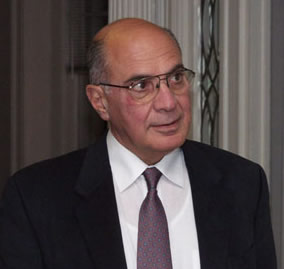 |
Samuel Hazo |
Tonight I found a diary you kept
In 1928, and while I read
Your script in English, Arabic, and Greek,
I grudged those perished years and nearly wept
And cursed whatever god I often curse
Because I scarcely knew one day with you
Or heard you sing or call me by my name.
I know you were a teacher and a nurse
And sang at all the summer festivals.
You made one scratched recording a song
I often play when no one else is home,
But that is all I have to keep you real.
The rest exists in fragile photographs,
A sudden memoir in my father’s eyes
And all the anecdotes of thirty years
Remembered like a portrait torn in half
And torn in half again until a word
Deciphered in a diary rejoins
These tatters in my mind to form your face
As magically as music overheard
Can summon and assemble everything
About a day we thought forever past.
For one recovered second you are near.
I almost hear you call to me and sing
Before the world recoils and returns …
I have no monuments, my beautiful,
To offer you except these patterned lines.
They cannot sound the silenceness that burns
And burns although I try to say at last
There lives beyond this treachery of words
Your life in me anew and in that peace
Where nothing is to come and nothing past.” [8]
Likewise in his poem “Ahead of Time” he describes finding a letter his mother once wrote:
“Her letter, mailed from Saranac,
Is dated 1926.
My mother’s
Writing to my aunt.
It’s two years since she told her father,
‘Dad, I’m marrying Sam
And not the man you had
In mind.’
That’s decades more
Than half a century ago.
My mother and my aunt are dead.
I’m well past sixty when I share
My mother’s letter with my wife.
It stills us like a resurrection.
…I realize my life’s already longer
Than my mother’s was by almost
Thirty years.” [9]
And in “The First Sam Hazo and the Last”, he movingly writes of the passing of his father and how the loss of his wife impacted his life:
“ ‘In bed you think of everything.’
He whispered with a shrug, ‘you think
Of all your life.’
I knew
He meant my mother.
Without her
He was never what he might have been,
And everyone who loved him knew it.” [10]
Politics: Left and Right
Samuel Hazo has always been politically outspoken. In his essay, “Far Left, Far Right, Far Wrong”, Hazo criticizes the political extremes of both the Left and Right. He criticizes the extreme Left in the following extract:
“In our country the machinations of the Left have burdened us with social engineering (busing of students at one point, whose only fruit was to make students commuters long before they had to be), multiculturalism,…or the polarization of the sexes…What finally happens with far Leftists is that human nature catches up with their unrealizable goals." [11]
As for the Right:
“To ultra-Rightists the “people” are not citizens to be governed. They are subjects who must be ruled. If they cannot be ruled by force, then they must be ruled by ruses and lies—or, in sanitized language, disinformation. Any social contract between the ruling right and the citizenry is totally missing since the people are regarded by their governors as enemies (or jerks), not partners.
Who knows what drives the politically ambitious to such superciliousness?...What…on the eve of the Gulf War made Secretary of Defense Cheney say, “The issues involved here are too complicated for the American people to understand.” In other words, let “us” order your sons into situations of maximum jeopardy that only “we” can understand while “you” the people… trust “us” blindly with their lives. This line is as old as Tennyson’s “Yours not to reason why,/Yours but to do and die.” Whether in prose or verse, this is bilge of the highest order.” [12]
This leads us to Hazo’s views of war in general and the American wars against Iraq in particular.
Wars against Iraq
Hazo was an officer in the US Marine Corps, so he is familiar with the realities of war and he has written of the tragedies of war and of the death of his comrades. Hazo criticizes war in general as follows:
“Lest we think that the white flashes over Hiroshima and Nagasaki were but isolated examples of technology as an all-purpose solution, we only have to consider its recent resurrection in what has come to be known as the Gulf War [of 1991]. Once the war began, the vocabulary of peace, which, though mouthed with total hypocrisy by many, did contain words like patience, innocent lives and creative diplomacy, became redundant. The lexicon of war took over completely. We did not have marines and infantrymen in a particular locale; we had assets. Iraq and Kuwait no longer existed as nations but as “target-rich environments.” Civilian deaths were translated euphemistically into “collateral damage.” And then, of course, there were “friendly casualties.” A commanding general, when asked what our strategy for winning the war was, responded, “We are going to surround it (the Republican Guard), and then we are going to kill it.” As necessary as this language must be for military planners, it serves technology totally by converting everything into the neuter gender. Men and women, friendly or otherwise, become so many “its” for battlefield purposes. Only later do human values reassert themselves when survivors or their kin speak after the dead and wounded are returned to their families." [13]
He was particularly critical of the “neo-conservative appointees and journalists whose philosophy of indefinite warfare (not for peace but for more war wherever) apparently is the core philosophy of the Bush administration” [14]:
“A case has been made that those most outspoken in support of a go-it-alone war in Iraq are those who supported the Vietnam War but never served in it though they were of age to do so, i.e., Paul Wolfowitz, Richard Perle, Dick Cheney, et alia. When asked to explain this discrepancy, Vice President Cheney said, "We had other priorities." His statement not only gives the institution of "selective" service a new meaning in the history of evasion, but it also might explain why these militants are often at odds with their very generals, who know the human costs of what they might be ordered to do.” [15]
And in his important essay, “How much is enough?”, Hazo recently wrote:
“Albert Camus wrote that life is learning to live with one's wounds. That applies to nations as well as persons. From the latter part of the last century until now our nation has had a lot of wounds to live with, and we have survived to talk about it.
…We have survived the machinations of one Ollie North, who bypassed Congress to funnel aid to the Contras and got away with it. We have survived the deft maneuvers of Katherine Harris, James Baker, Jeb Bush and others to swing the election of 2000 to the Supreme Court and, predictably from there, to George W. Bush.
Then, under the mantra of revenge for Sept. 11, 2001, we illegally invaded and occupied Iraq. Now we are condoning a second invasion and demolition of Lebanon while being correctly identified by world opinion as complicit in Israeli policies. These inevitably provoke reprisals, and innocents on both sides die.
…. The question that begs to be answered as a result of all these debacles is not why we have survived, but what we have survived to be. Is our present government more deeply committed to constitutional principles than it was 50 years ago?
Anyone who answers yes has to square his answer with recent policies allowing institutionalized torture, imprisonment without charge or trial, surveillance without warrant, abrogation of certain privacy rights, carefully orchestrated attacks on freedom of the press and freedom of information, the subordination of U.S. foreign policy to the dictates of another country, and finally the option of the president to commit the country to a war of choice.
…Between a false triumphalism on the one hand and defeatism or despair on the other, living with one's wounds and dissenting from those whose policies inflicted them, is about as dignified an alternative as there is at the moment. Not much, but something.”
Adonis and Nadia Tuéni….and the Phoenix
Hazo’s interest in the Near East is not limited to just critiquing American policy in the region. Hazo has been instrumental in translating and popularizing the works of Syrian and Lebanese poets: in particular Nadia Tuéni and Adonis [16]. Hazo describes his work with these two poets as follows:
“In one of my ventures as a translator, I turned a selection of poems by the Damascene poet Adonis (Ali Ahmed Said) into English. Again, I worked with a linguist but with trepidation since Arabic at its poetic best tends to be an imagistic and aphoristic language.
…But with Adonis—and this was true before as well as after I met him—I felt I was with someone whose vision and way of thinking or feeling or felt-thinking…were akin to my own. When I tried my hand at translating his poems, the spirit of his poetry seemed almost to glide into English, as in the following entitled “The Days”:
My eyes are tired, tired of days,
tired regardless of days.
Still must I drill through wall
after wall of days to find another day?
Is there, is there another day?
The more I worked on Adonis’ poems, the more I discovered that the Arabic imagination does things to English that the Western imagination seems incapable of doing. Take, for example, these two words (literally translated) that describe the cramped and frenzied fluttering of a butterfly that is held captive within a cage of cupped fingers of two hands—“jailed astonishment.” How evocative, how daring, how simply different, and, finally how perfect.
…The next major effort I made in translation was a sequence of poems by Nadia Tuéni called “Lebanon: Twenty Poems for One Love.” These were poems written by Mrs. Tuéni in French…as a kind of poetic geography or map of Lebanon despite its gradual disintegration and destruction by feuding internal parties and the Israeli invasion. It is a testament not only of memory but of history itself. She lists twenty separate and uniquely Lebanese subjects or keystones: individual cities, towns and villages, the famous cedars of Lebanon, the women and men of the mountains and so forth.
After I worked over the versions that I made from the transliterations, I made arrangements to go over the poems with her husband, Ghassan Tuéni, the prominent editor, publisher, author and former ambassador from Lebanon to the United States (Mrs. Tuéni died in 1983). He is a man who is absolutely devoted to his wife’s memory and her poetry, and his wish to have a good version of the Lebanon poems in English… was just as intense as my own.
I thought and still think the poems beautiful, but Ambassador Tueini’s taste in poetry was more Tennysonian than mine, and we had a good many disagreements about how the poems would work best in English….Should it be “Byblos, my beloved” or “My beloved Byblos?”….The result of all this backing-and-forthing was uniquely satisfying to me, and all the efforts in retrospect were well worth it.” [17]
The poems of Nadia Tuéni [18], which Hazo translated, include homages to Beirut, Byblos, Tripoli, Balamand, Baalbeck, the mountains, the cedars, and the men and women of Lebanon. These poems are dedicated to Lebanon: its beauty, eternity and transcendence.
For example, she writes:
“My awakening country
Casts a shadow of its face on the land’s whiteness.
My country lasts because it must.
…My country, you are a journey between dreams and dawn” (from “My Country”) [19]
“Women of my country,
…you reassure mountains,
make men believe they are men
convince ashes of their own fertility
and tell the land that it will never pass away.
Women of my country,
Even in chaos you discover what endures.” (from “Women of My Country”) [20]
“Mountains, my mountains,
Let me love you
…on my knees as a farmer loves his land.” (from “Promenade”) [21]
Hazo is able to present these beautiful poems of Tuéni to the English speaking world. He does the same with the works of Adonis. Here are a few examples of Adonis’s poetry which Hazo has translated:
“Mount Suneen”:
From his room in the sky
My mountain
Reads
To the night
To the trees,
To all who cannot sleep—
His high sorrows [22]
And “Gilgamesh”:
Between myself and the road before me—
Sadness.
Did I die when my country began to shrink
And my desire overwhelmed me?
Were my words extinguished?
Shall I say now: “I am not myself.”
Shall I say: “I have created ashes.”[23]
Both Adonis and Tuéni evoke the eternity of geography set against the travails of history. Both poets also make references to ashes [24] and fertility, terms symbolically evoking the cyclical nature of the history of the Fertile Crescent and its people: eternally martyred yet eternally surviving. There is a cyclical nature to history in general, but it is most pronounced in the millennia lands of the Fertile Crescent, a fact even remarked upon by Gibran. [25]
As Tuéni beautifully wrote in her poem above, the women of her country “convince ashes of their own fertility and tell the land that it will never pass away… even in chaos you discover what endures.” Fertility out of ashes, endurance past chaos, resurrection after martyrdom: This eternal cycle of death and life finds its most succinct telling in the ancient Phoenician myth of the Phoenix: a bird which lives 500 years, then dies in a mighty burst of flames, only to be reborn and resurrected from its own ashes. [26]
This myth is an expression of our own historical experience: as a bastion of culture and civilization--surrounded by aggressive neighbors; as a region of fertile valleys, glorious mountain peaks and historic rivers--surrounded by harsh, barren lands. A history of survival against all odds and triumph over all hardships and persecutions: this Flickering Light of Asia, [27] no matter how buffeted, is never completely extinguished. Like the Phoenix, our eternal flame always survives, even out of its own ashes.
As a side note, it can be remarked that this ancient Phoenician myth of the Phoenix would continue to exert an influence even into our own day. Salvador Dali and Jean Cocteau would create the philosophy of “Phoenixology”, based upon that mythos. Cocteau described this philosophy as “the science that allows one to die many times, only to be reborn” and used it as a prominent theme in many of his films. [28]
Role of poetry and the poet
Returning to Samuel Hazo, we should conclude our discussion of him by examining his views on the role of the poet in society. On this subject he has written:
“From the time of the earliest cultures to the present, poets have been seen as the most reliable witnesses because they are not only veritable ‘seers’ of the exterior and interior world, but they are able to convey their experience of it to others in language.
….The greatest poets in history have endured because their expressed visions have helped us see and feel those things that are permanently true of the human condition.” [29]
And as for poetry, he has stated:
"If we live in a society, poetry (and literature generally) is the only language that tells us who we truly are. For a society to be and to remain truly human, it is essential that poetry be an accepted and expected part of public speech," [30]
He further states: “Poetry…introduces awe into our lives, and awe is the beginning of the wonder of wisdom, and wisdom inevitably returns us to our own humanity.” [31] And in a lecture to students Hazo said:
“I write poetry because I can’t stop. I started writing in the service in order to keep my sanity, and I still do it to keep my sanity” [32]
And as for his advice to the younger generation:
“Students are lucky. You have four years to decide what it is that you don’t want to do, and then what’s left is what you should do. Do what you love to do. If you’re doing something you don’t love to do because of security, I have news for you. There is no such thing as security. But when you do what you love to do and you’re good at it, you excel.” [33]
Hazo Family Connections: Brother and Son
On a final note, we should make mention of Samuel Hazo’s brother, the scholar Robert George Hazo, who passed away in 2006, as well as his son, Samuel Robert Hazo. Robert G. Hazo studied at Princeton, the Sorbonne and the American University of Beirut. In 1971, he founded the American Experience program at the University of Pittsburgh. The American Experience program sponsored lectures and debates by prominent speakers from the fields of politics, economics and journalism. Participants included Robert Novak, Sam Donaldson, Ted Turner, Janet Reno, Ralph Nader, William F. Buckley Jr. and Pat Buchanan, among many others. G. Alec Stewart, dean of the University Honors College had the following to say about Robert Hazo:
“He…was a remarkable character. He had the intellectual courage to say what was on his mind. This did not always endear him to the ‘higher-ups,’ but I had great admiration for that quality…Robert was a man of substance and style who understood the difference between celebrity and actually having something to say. He knew that visibility was not the same as wisdom. But underlying everything was his profound devotion to liberal education as a route to personal freedom and enlightenment.” [34]
Samuel Hazo was very close to his brother, Robert, as is evidenced by the following lines he wrote:
While other brothers meet and talk like foes
Or strangers or alumni—hostile, cool
Or banal--, brotherhood is still our binding.
…We…keep as one our vigor in the bond
Of blood where love is fierce but always fond. [35]
As for Samuel Hazo’s son, Samuel R. Hazo: he is a noted composer of concert band music. It is worth quoting a few lines from his biography:
“He has composed for the professional, university and public school levels in addition to writing original scores for television, radio and the stage. His original symphonic compositions include performances with actors Brooke Shields, James Earl Jones, David Conrad and Richard Kiley. He has also written symphonic arrangements for three-time Grammy Award winning singer/songwriter Lucinda Williams. Mr. Hazo’s compositions have been performed and recorded world-wide, including performances by the Tokyo Kosei Wind Orchestra (national tour), the Birmingham Symphonic Winds (UK) and the Klavier Wind Project’s recordings with Eugene Migliaro Corporon. Additionally, his music is included in the series "Teaching Music Through Performance in Band." Mr. Hazo's works have been premiered and performed at the Music Educators’ National Conference, Midwest Band and Orchestra Clinic, World Association for Symphonic Bands and Ensembles Convention, National Honor Band of America, National Band Association/TBA Convention, College Band Directors’ National Association Convention and also aired in full-length programs on National Public Radio. …In 2004, Mr. Hazo's compositions were listed in a published national survey of the "Top Twenty Compositions of All Time" for wind band.
Mr. Hazo has been a music teacher at every educational grade level from kindergarten through college, including tenure as a high school and university director. Mr. Hazo was twice named “Teacher of Distinction” by the southwestern Pennsylvania Teachers’ Excellence Foundation.” [36]
Thus we see that the Hazo family is truly a very creative and active American family with a solid intellectual tradition, firmly anchored in their Pittsburgh environs, yet still honorably reflecting their Assyrian and Lebanese ancestry.
 |
- Hazo, Samuel, “Once for the Last Bandit”, pg. 14, “Progenitor”.
- The International Poetry Forum was founded in 1966 by Samuel Hazo. The Forum’s vision is focused on the oral presentation of poetry and the enhancement of life through poetry.
- Zoghby, Mary D., MELUS, Vol. 23, No. 4, Theory, Culture and Criticism (Winter, 1998), pp. 230-233
- Hazo, Samuel, “Once for the Last Bandit”, pg. 91, “For Fawzi in Jerusalem”.
- I recognize that I violated this concept somewhat in the title of this essay by describing Samuel Hazo as a “Lebanese-Assyrian”; yet I do so only as way of introducing him to our reader base, so I hope I will be forgiven.
- Hazo, Samuel, Pittsburgh Post Gazette, November 20, 1999. “What makes us Americans?”
- Hazo, Samuel, “Once for the Last Bandit”, pg. 14, “Progenitor”.
- Hazo, Samuel, “Thank a Bored Angel”, pgs. 4-5.
- Hazo, Samuel, “As they sail”, pg. 126.
- Hazo, Samuel, “As they sail”, pg. 104. Extract from “The First Sam Hazo and the Last” (Emphasis added.)
- Hazo, Samuel, “Spying for God: Essays on Poetry, Politics and Places”, pg. 88.
- Hazo, Samuel, “Spying for God: Essays on Poetry, Politics and Places”, pg. 89.
- Hazo, Samuel, “Spying for God: Essays on Poetry, Politics and Places”, pg. 20.
- Hazo, Samuel, “A Matter of Life and Death: The war rationalizing writers and policy makers are callous at best”, Pittsburgh Post Gazette, September 13, 2003.
- Hazo, Samuel, “Forum on Iraq: A Battle of Conscience: Those who are questioning America's march toward a pre-emptive war with Iraq are the real patriots”, Pittsburgh Post Gazette, December 15, 2002.
- The following books are Hazo’s translations of Adonis: “The Blood of Adonis” (1971), “Transformations of the Lover” (1983) and “The Pages of Day and Night” (2000). See this link (http://www.thepoetryforum.org/AdonisShaheen.m3u) hosted on Hazo’s International Poetry Forum Site for a beautiful recording of Samuel Hazo and Adonis reciting Adonis’s poems in both English and Arabic while Simon Shaheen plays oud in the background. You can also hear Hazo reciting many of his own works on the site at this link: ( http://www.thepoetryforum.org/poets.html ). Also included on that link are recitations by other noted poets who have performed at the International Poetry Forum events.
- Hazo, Samuel, “On Translating Adonis and Nadia Tueini: The Many Definitions of a Translator”, AlJadid, Vol. 5, No. 26., Winter, 1999.
- Tuéni, Nadia, “Lebanon: Poems of Love and War”, translated from the French by Sam Hazo and Paul B. Kelley. It should also be noted that in 1997, Voix de l’Orient and Fondation Nadia Tuéni produced a beautiful CD recording of these French poems; it is called “Nadia Tuéni: Liban: 20 poèms pour un amour” (VDL CD 648).
- Ibid, pg. 7-9.
- Ibid, pg. 25 (Emphasis added.)
- Ibid, pg. 49.
- Adonis, “The Pages of Day and Night” translated from the Arabic by Samuel Hazo, pg. 23.
- Adonis, “The Pages of Day and Night” translated from the Arabic by Samuel Hazo, pg. 88.
- Nadia Tuéni wrote, “I survive my own ashes, and I know from memory the future of my time.” “Lebanon: Poems of Love and War”. Adonis wrote, “A time between ashes and roses is coming When everything shall be extinguished When everything shall begin.”, Adonis, “An Introduction to the History of the Petty Kings” in “A Time Between Ashes and Roses”, pg.55.
- “History looked upon her as a loving father looks upon his child, and said, ‘Oh Syria, what I have taken from you were my own gifts. Know that you sister-nations are entitled to a part of the glory which was yours. I must give to them what I gave you. Your plight is like that of Egypt, Persia and Greece, for each one of them also has a lean flock and dry pasture. Oh Syria, that which you call degradation is an indispensable sleep from which you will draw strength. The flower does not return to life save through death, and love does not grow except after separation.’ ” Kahlil Gibran, “History and the Nation” in “Thoughts and Meditations”, pg. 76.
- On the Phoenix mythos, see “Phoenicians” by Sanford Holst, pgs.349-351.and “The Phoenician Solar Theology” by Joseph Azize, pgs. 197-205. On this topic Charles Corm has written the following “The Phoenix…who set himself ablaze with his own flames / Was born again from his ashes and triumphed over destiny, / Meant Eternal life to the soul / In defiance of death” Charles Corm, “The Tale of Recollection” in “The Sacred Mountain” (“La Montagne inspirée”), pg. 51. And Gibran has written: “reason, ruling alone, is a force confining; and passion, unattended, is a flame that burns to its own destruction. Therefore let your soul exalt your reason to the height of passion, that it may sing; and let it direct your passion with reason, that your passion may live through its own daily resurrection, and like the phoenix rise above its own ashes.” Kahlil Gibran, “The Prophet”, pg. 50-51.
- The title of the classic book by the great Assyrian writer, Joel E. Werda.
- See, for example, Cocteau’s films in his Orphic Trilogy: “The Blood of a Poet” (“Le Sang d’un Poete”, 1930), “Orpheus” (“Orphée”, 1949), and “Testament of Orpheus” (“Le Testament d’Orphée”, 1959).
- Hazo, Samuel, “The Power of Less: Essays on Poetry and Public Speech”, pg. 9.
- Remarks written for the Butterfly Poetry Festival of 2006. symposium of Pennsylvania’s Poets Laureate.
- Hazo, Samuel, “The Power of Less: Essays on Poetry and Public Speech”, pg. 18.
- Hoover, Jessica, “Former Poet Laureate Gives Advice About Life”, “Eagle Eye”, November 2, 2005.
- Hoover, Jessica, “Former Poet Laureate Gives Advice About Life”, “Eagle Eye”, November 2, 2005.
- “University Times”, Volume 38, Number 10, January 19, 2006. “Obituary: Robert G. Hazo” Robert Hazo was also author of “The Idea of Love”, in the Concepts in Western Thought Series under the General Editorship of Mortimer J. Adler.
- Hazo, Samuel, “Once for the Last Bandit”, pg. 9-10, “Postscript to Many Letters”.
- Extracted from the biography on his official website: http://www.samuelrhazo.com/ Some of Samuel R. Hazo’s compositions are on that site where they can be listened to.
Plight of the Christians in North Iraq
Two Articles by Kenneth Timmerman
Courtesy of NewsMax.com
Christians Want Police Protection in Iraq
Tuesday, 29 April 2008
For Christians living in the ancient sprawling town of Tel Kaif, just 10 minutes north of Mosul, geography is a curse. “We are sandwiched between the Arabs in Mosul, and the Kurds in Erbil,” says William Warda, 47, who grew up in this city in the 1960s and '70s.
Local leaders are hoping that a modest proposal, currently in committee in the U.S. House of Representatives, can bring dramatic changes to their everyday lives.
The $4 million measure will fund a 711-man local police force for the Nineveh Plain. It is part of a $30 million emergency relief package for the predominantly Christian region submitted to Congress last month by Rep. Mark Kirk, R-Ill., and Rep. Frank Wolf, R-Va.
“We need to have our own security force, our own police force,” Warda tells Newsmax. “But we want an official force, not a militia. It should be drawn from all the communities in the Nineveh Plain, not just Christians. And it should be part of the national police, reporting to Baghdad, not to Erbil or Mosul.”
With the collapse of central government services in the region because of terrorist incursion from Baghdad, fighters loyal to Kurdish Regional Government (KRG) President Massoud Barzani have set up shop in Christian towns and villages, even though the Nineveh Plain lies outside KRG authority.
While the Kurdish fighters, known as peshmergas, provide much-needed security for the area, they also commit exactions, local leaders and residents tell Newsmax.
Sometimes, the harassment is banal. In the town of Hamdaniya, for example, Barzani’s men have taken over the town library and has refused to give it back.
“They have set up an intelligence headquarters there,” said Ehmad Behnam, a member of the Hamdaniya district council. “We have asked them many times to go someplace else, but they refuse to leave.”
In Tel Keif, students complain that they were barred from renting a hall for a high school graduation party last year by local militiamen working for the KRG Finance Minister Sarkis Aghajan, because they weren’t members of his party.
Mr. Aghajan, who is Christian, has become the public face of the KRG in the Ninevah Plain, where he has built an extensive patronage system by doling out cash through local churches.
But the repression also can get ugly.
In December 2005, during Iraq’s first parliamentary elections, Barzani’s Kurdish Democratic Party (KDP) bused hundreds of peshmerga fighters and party loyalists to Christian villages on Election Day, where complacent officials opened the polls and allowed them to vote.
Once they had cast all the available ballots in one town, they would move on to the next village to vote again. “The image you see in America of people dipping their finger in purple ink after they voted was a joke here,” one local official told Newsmax.
“The KDP controlled the polling places, so for them the ink was no problem,” he said. “None of them was made to dip their finger in the ink.”
Dozens of local officials filed formal complaints of election fraud and ballot stuffing with the Mosul governor, the central government in Baghdad, the United Nations, and the U.S. embassy, but never received a reply.
“We must have international election monitors in all these places in time for the next parliamentary elections,” former Iraqi minister of migration, Pascale Warda, told Newsmax.
In Hamdaniya, the largest Christian district in the Nineveh Plain, Kurdish peshmergas simply stole the ballot boxes when local officials phoned the U.S. embassy in Baghdad to get them to send more ballots.
“Everyone in Hamdaniyah and the surrounding villages was deprived of their right to vote,” said Warda.
In the early evening, well after the polls had officially closed, district council member Louis Markus Yacoub was told that fresh ballots had finally arrived.
“I was the one selected to go pick up the ballots, but the Kurdish intelligence people arrested me on the way,” Yacoub said.
They yanked him out of the car in front of four policemen, and took him to the local peshmerga headquarters, where they beat him for three hours.
“They beat me in my back and my shoulders. They beat me in my face and my head. Seven people were beating me with their fists. They even broke my teeth,” he said.
Yacoub says the peshmerga told him outright that they had arrested him to prevent him for picking up the fresh ballots, because they knew they would lose the elections if the Christians were allowed to vote.
“We are asking for the militas to be banned from the next elections,’ said fellow council member Ehmad Ayad. “Next time, we would like the protection of the national army, with American help.”
The KDP hasn’t only targeted Christians. In Dohuk, teams of armed peshmerga fighters stormed the election offices of the opposition Kurdish Islamic Union, killing two party workers, including the leader of the KIU election list.
In Zakho, they killed two more KIU officials. “They were hoping to do worse, but I happened to be in Baghdad at the time and asked U.S. and British ambassadors for help,” says KIU general secretary, Salahuddin Bahauddin.
After several phone calls by the ambassadors to KRG President Barzani, the peshmerga stood down. “Their plan was to attack us in other regions as well,” Bahauddin told Newsmax in Erbil.
The KRG eventually agreed to pay Bahauddin’s party compensation for the damage done to their buildings. But KRG officials insist that the violence was the work of individuals, not the government militia.
Such explanations fool no one in the Nineveh Plain. “If the Kurds would just take their hand off this region, the future would be very bright,” said Tel Kaif Mayor Bassam Ballo.
Johnny Koshaba learned first-hand how brutal the peshmerga can be. The 34-year old Assyrian journalist was taken from his home in Tel Kaif last month and beaten after he wrote an article exposing the corruption of KRG Finance Minister Sarkis Aghajan.
“I found that the money Sarkis hands out was going to individuals who serve his policy and the Kurdish leaders’ policies to take over this land,” Koshaba said.
The peshmerga took him to a detention center in Sarseng — more than an hour’s drive away — and beat him for two days while they interrogated him.
On the third day, they presented him with a “confession” written in Kurdish and told him they would release him if he signed it.
“I don’t read or speak Kurdish, but I signed it anyway,’ Koshaba said. “They told me I was not allowed to talk about what happened to me during my detention.”
Warda, who runs the Hammurabi Organization for Human Rights and Democracy Monitoring, believes that the exactions of the peshmerga have driven Arabs in nearby Mosul into the hands of al-Qaida.
“An Arab tribal leader told me, ‘we can get rid of al-Qaida in one day, but we won’t, because we don’t want the peshmerga to fill the vacuum,’” he said.
Al-Qaida and the Kurdish peshmerga need each other, said Dr. John Eibner, the CEO of Christian Solidarity International, who toured the region last week as part of an aid mission.
“Without al-Qaida, the United States wouldn’t support the peshmerga. Without the peshmerga, the locals wouldn’t support al-Qaida,” he said.
It was never supposed to happen this way. Two years ago, the U.S. Army Joint Operation Center and the Iraqi Interior Ministry ordered the creation of a local police force for the Nineveh Plain, but it has twice been blocked by the officials from Barzani’s Kurdish Democratic Party.
Leading the charge against the local police force was the KDP deputy governor of Nineveh Province, Khisro Goran, who claimed the police would become “a Christian militia.”
The KDP’s motive is simple, says Michael Youash of the Iraqi Sustainable Democracy Project in Washington. “The KDP interests are outlined in a simple article of the KRG constitution that says the Nineveh Plain shall be absorbed into the Kurdistan Region in Iraq.”
Instead of allowing the creation of an authentic local police force, independent of the KDP, Barzani’s party has sought to buy patronage through Finance Minister Aghajan and a cadre of “KDP Christian loyalists,” Youash and others believe.
The $4 million legislative earmark being sponsored by Rep. Mark Kir and Rep. Frank Wolf is aimed at “removing the political bottlenecks” created by the KRG that have prevented the creation of a local police force for the Nineveh Plains until now.
Just last week, the initial complement of 711 policemen were called up and began training, Youash tells Newsmax. Another 4000 policemen will be needed to fully secure the region and establish checkpoints on all highways and roads leading into the villages.
“Standing up a local police force will help with economic development as well,” said Joseph Kassab, secretary general of the Chaldean Federal of America who toured the region last month.
Kurdistan Minister - Rich Star, or Pawn?
Thursday, May April 2008
Like the larger-than-life hero of the classic F. Scott Fitzgerald novel of the roaring 20s, Iraqi Kurdistan's mysterious Minister of Finance, Sarkis Aghajan, has star power.
He is reputed to be one of the richest men in Iraq. And yet, like the fictional Jay Gatsby, no one knows anything about the sources of his wealth, his early career, or his family origin.
"We have no official biography of Mr. Aghajan as far as I know," a senior U.S. official in the Kurdish capital, Erbil, told Newsmax. "How did he make his money – if indeed, he is personally wealthy? I haven't a clue."
Call him the Great Gatsby of Iraqi Kurdistan.
No one knows of any business experience or expertise that would explain Mr. Aghajan being given responsibility for Kurdistan's financial portfolio. What little is known of his family background suggests modest landholdings in northern Iraq and in Iran, but no vast family fortune that would explain his profligate spending.
And yet, according to confidants – including a U.S. consultant who began his career in northern Iraq as an evangelical missionary in the early 1990s – Mr. Aghajan has quietly disbursed tens of millions of dollars of his own money to help Iraq's embattled Christian population.
"Sarkis has been like a saint to Iraqi Christians," the consultant said. "He has housed 20,000 families who moved here from Baghdad at his own expense. He's built schools for them, and he did it all alone."
Set aside for the moment the exaggerations of a self-confessed recipient of Mr. Aghajan's favors. (Kurdish officials told Newsmax that 2,000 displaced Christian families have moved into the region, not 20,000).
The efforts by the consultant to sway reporters and other visitors, and by Mr. Aghajan himself through Ishtar TV – a well-funded satellite channel that Mr. Aghajan established to recount his good deeds to the world – amount to a very conscious attempt at myth-building.
Ishtar TV regularly broadcasts "celebrations" of Mr. Aghajan by "grateful" Iraqi Christians. Some sing his praises after moving into tiny prefab houses in reconstructed Christian villages in Kurdistan. Others parade about with huge photos of Mr. Aghajan at New Year's celebrations in Paris, à la Saddam Hussein.
"By providing housing and aid to displaced Christians, Sarkis wants to send a message to people who align with the KDP [Kurdish Democratic Party] that he can deliver," Dr. John Eibner, CEO of Christian Solidarity International, told Newsmax during a recent aid mission to northern Iraq.
"He is being positioned by the KDP to become the 'agha' of the Christians in Kurdistan and the Nineveh Plain," Dr. Eibner added, referring to a common term that blends the affection peasants might have for a benevolent landowner with the ruthlessness of a political overlord.
Mr. Aghajan would appear to owe his ascendancy within the KDP power structure to his personal relationship to Nichervan Barzani, the Kurdish prime minister.
His supporters say that as young men, the two were forced to flee Kurdistan with their families in 1975, after the United States withdrew support for the Barzani clan in its struggle for independence from Saddam, and grew up together on the Aghajan family estate in Iran.
Powerful, or Used?
"Some say Sarkis is using the Kurds to achieve the rights of the Christians. If that's true, I'll be the first to applaud," said William Warda, vice-president of the Hammurabi Human Rights organization, and an Assyrian nationalist. "But I don't think he's so powerful. I think the Kurds are using him,"
The KDP's political designs are transparent, says Salahuddin Bahauddin, secretary general of the opposition Kurdistan Islamic Union.
"Sarkis is being used against the Assyrian nationalist movement, which is seeking to get the Nineveh Plain region recognized as a self-governing province of Iraq, reporting directly to Baghdad," Mr. Bahauddin told Newsmax in an interview.
The Kurdish government is seeking to make Sarkis the "president of a Christian triangle" attached to the Kurdish region, the former member of the Iraqi Governing Council said.
"His role is to decorate the Kurdish Regional Government, to counter accusations of persecution against Christians by the KDP. He should be called the Minister of window-dressing," Mr. Bahauddin added.
At first glance, the image-building would appear to be a success. Wherever one travels in Christian areas in northern Iraq, Mr. Aghajan's name is on everyone's lips.
Within the Kurdish Regional Government area itself, he claims to have rebuilt 80 Christian villages destroyed by Saddam Hussein and made them available for refugees fleeing religious persecution in Baghdad and Mosul.
In Ainkawa, the Christian suburb of the Kurdish capital, Erbil, his supporters claim that he has handed out building lots, permits, and construction materials gratis to Christian refugees.
Not So Generous to Everyone
In more than a half dozen locations I visited in the Nineveh Plain, Mr. Sarkis has built tenements to house Christian refugees – at least those who profess to support his political party, the KDP. But he is quick to cut the salaries of local officials and aid payments to refugees who express hostility to his political designs.
In a trademark program, he has financed the building of lavish new churches and Christian cemeteries throughout the region, in an effort to win the support of church leaders for his political goal of integrating the Assyrian Christians into Kurdistan.
Some of the new churches have cost millions of dollars, according to local priests and government officials, And yet, for all of the spending, no one has a clue where the money originates.
Kurdish officials told Newsmax that Mr. Aghajan had been put in charge of funds provided by the Kurdish Regional Government to aid Christians fleeing persecution.
To dole out the aid, Mr. Aghajan has established a vast network of Christian aid committees, most of which operate through local churches, to provide welfare subsidies and other assistance to the refugees.
But recipients of the aid interviewed in several refugee complexes said that welfare payments from Mr. Aghajan's committees had been cut off last July, and that they were now required to pay rent at his housing projects.
Show Me the Money
"What benefits have we had from Sarkis Aghajan until now?" complained Jamal Dinha, mayor of Bartela, a prominent Christian town in the Nineveh Plain. "I'd like to see where this money he says he is spending is going. He says he is building churches – but most of the money disappears in corruption."
Mayor Dinha is a member of the Assyrian Democratic Movement (ADM), a nationalist party that is seeking administrative autonomy for the Nineveh plain under the Iraqi national constitution.
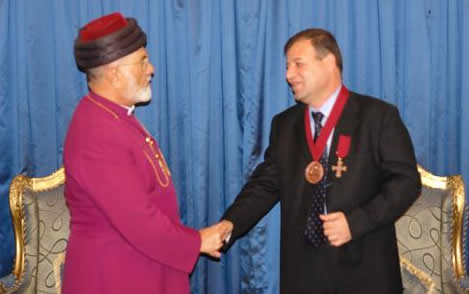 |
Patriarch of the Assyrian Church of the East, Mar Dinkha IV, awarding Mr. Sarkis Aghajan with a medal - one of the three he received from three Assyrian patriarchs. |
"We have asked Sarkis to build schools, not churches," he added. "Here in our town, Sarkis bought land for a cemetery. We say that he pays more attention to the dead than to the living."
Mr. Aghajan is credited by his supporters with convincing KDP leaders to allow Christian Evangelical churches to preach the gospel to Muslims.
Since 1992, when the first Evangelicals came to Kurdistan, some 1000 Muslim-background believers have been baptized into the Christian faith, according to Pastor Aram Daoud, who works with the Christian affairs division of the Kurdish ministry of Awqaf and Religious Affairs.
And yet, despite Mr. Aghajan's patronage, evangelical churches continue to receive threats.
"We baptized thirteen new believers on February 1 of this year," Pastor Daoud said. "The very next day, we received a death threat – a fatwa – posted on the door of our church."
Pastor Daoud's supervisor at the ministry, Khaled Jamal Alber, was quick to interject. "In Kurdistan, there is freedom of religion. No one stops us from practicing our [Christian] faith. The threats come not from the government, but from individuals."
"Sarkis has done more for Christians than any man I have known in the world, and I have been in 50+ countries," an American supporter of the Kurdish finance minister said.
"He is very quiet and does not seek recognition or remuneration. He has received just about every award given to Christians from every major denomination in the world including the Knighthood of the Order of St. George from the Pope. The next step after that is canonization!"
And yet, Mr. Aghajan's critics say that he is using the church to build a system of patronage on behalf of the KDP, with the goal of convincing Christians in the Nineveh plain to join the Kurdish region.
Using Christianity
"Personally, he is a good man, a kind man," said Father Sabri al Maqdessy, a Chaldean priest in Ainkawa. "He's trying his best to do some kind of projects for the Christians. But they are using us for propaganda for themselves."
He pointed to the huge cross at Erbil international airport as an example. "That is the first thing Westerners see at the airport. It's a symbol for them. A lot of the [Kurdish government] politicians were educated in the West. They know the strength of that message, to see a cross in a Muslim country. They think it will send a message that they treat the Christians better.
"They do treat us better – while they take everything we have," he added. "In another ten years, we will have nothing. Christians will not own a centimeter of property. They will take it all."
Kurdish Islamic Union leader Salahuddin Bahauddin said that Mr. Aghajan and his masters in the Kurdish Democratic Party of president Massood Barzani were offered the Christians of the Nineveh plain a diabolical choice: enjoy the freedom to practice their faith as citizens of Kurdistan, but renounce their ethnic aspirations as Assyrians to an autonomous province under central government authority.
"We see Christians in the Kurdish parties, but they have been forced to give up their ethnic identity," Mr. Bahauddin told Newsmax. "We believe they should be able to keep it."
The political system established by the KDP is "autocratic and dictatorial," he added. "It's a one-party state, an adaptation of the Baath Party system of Saddam Hussein. If someone is close to the Party, he is welcome; if not, he's an outcast, even if he is a family member."
A former Iraqi aid worker in Hamdaniya, a district capital in the Nineveh Plain just outside of Mosul, told Newsmax that he had seen documents showing that Mr. Aghajan was spending U.S. aid money to help the refugees, all the while he pretended the money was his own.
"We know that this money comes from the United States," the former aid worker said. " The United States didn't want to pay the money to the central government in Baghdad. They preferred to pay it here. Since the minister of Finance is Christian they thought it would be spent in a good way to all the Christians. "
Instead, he claimed, nearly 90% of the money has disappeared into the pockets of Mr. Aghajan's cronies, with scarcely 10% reaching its intended recipients.
The aid worker insisted that Newsmax withhold his identity, for fear of reprisals from Kurdish officials.
No Contact
A U.S. official in Erbil acknowledged that the U.S. Agency for International Development (USAID) has spent approximately $31 million in the Nineveh Plain, but complained that the Kurdish regional government "lacked a transparent budget process" and had provided little or no accounting for how its funds were spent.
"Sarkis Aghajan is using this aid money for the political benefit of the KDP," said critic William Warda. "He should be telling them it's coming from the USA or from the evangelical church. But they don't say that. They say this is the KRG, and that they are doing this and that. They are cheating our people."
Newsmax made extensive efforts to contact Mr. Aghajan for comment on this article, starting with an official request for an interview through the Kurdish Regional Government office in Washington, DC.
Inquiries through the KRG in Erbil were politely rebuffed, as were efforts undertaken by a former Iraqi government minister, who personally asked Kurdish prime minister Barzani to arrange the interview.
Sources in Erbil identified a private office allegedly used by Mr. Aghajan to run his mysterious aid network. An aid at that office, who identified himself only by his first name, Gewargis, explained why efforts to contact Mr. Aghajan through his Ministry of Finance office had been unsuccessful.
"If you call those numbers, you will always get the same answer," he said. "Out of order, or turned off."
Gewargis had no explanation for why Mr. Aghajan kept four large floor safes in his personal office, which was filled with stacks of Christian books Gewargis said were being distributed by Mr. Aghajan's committees.
At the Ministry of Finance, an aid to Mr. Sarkis said he was "too busy" to receive foreign visitors. However, just minutes before Newsmax and former Iraqi government minister of Migration Pascale Warda arrived at the ministry, a team of Dutch parliamentarians were leaving after an appointment. They had come with offers of European Union aid for displaced Christians.
The criticisms of Mr. Aghajan by Christian refugees and others stemmed from a "classic gift horse in the mouth mentality," an American supporter of Mr. Aghajan told Newsmax.
"Give them a house – they want a better one. They complain about the lack of electricity, etc., etc. The answer for Christians in Kurdistan is not to complain about a man or the government but for the international Christian community to help fill the gaps. They have not."
Despite their positive comments, even Mr. Aghajan's supporters insisted that they not be identified by name because of ongoing business relationships with the Kurdish government.
 Kenneth R. Timmerman was nominated for the 2006 Nobel Peace Prize along with John Bolton for his work on Iran. He is Executive Director of the Foundation for Democracy in Iran, and author of Countdown to Crisis: the Coming Nuclear Showdown with Iran (Crown Forum: 2005). Kenneth R. Timmerman was nominated for the 2006 Nobel Peace Prize along with John Bolton for his work on Iran. He is Executive Director of the Foundation for Democracy in Iran, and author of Countdown to Crisis: the Coming Nuclear Showdown with Iran (Crown Forum: 2005).
Historical Background of Modern Assyrian Language
Dr. Geoffrey Khan
University of Cambridge
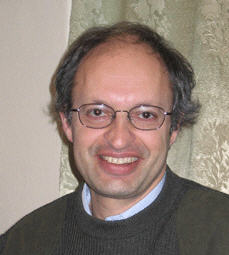 |
| Geoffrey Khan, Professor of Semitic Philology, University of Cambridge. |
The spoken language of the Assyrian Christians has sometimes been
considered to be a descendant of Syriac, the classical written language of the
Christians of the Middle East. For this reason it has been referred to by some
scholars as ‘neo-Syriac’. In this paper I should like to present evidence that
demonstrates that the modern spoken language of the Assyrians, although
clearly related to Syriac, does not have such a direct linguistic relationship
with it.
The first point that should be made is that modern Assyrian exists in
numerous dialects, which differ from one area to another, or indeed from one
village to another. In the present study all the dialects spoken by Assyrian
communities residing, or originally residing, East of the Tigris will be
considered as belonging to the same dialect group.
Classical written Syriac, a form of Aramaic, is a single language that is
uniform in its structure. It is unlikely that the large diversity of spoken
dialects of the modern Assyrian language could all be the direct descendants
of this one earlier language. Syriac remained remarkably uniform throughout
its history, despite the fact that it was used by Christian communities across a
wide geographical area in the Near East and over a long chronological
period. The writers of Syriac clearly spoke a large variety of vernacular
dialects and indeed languages, though all this diversity is concealed by the
literary language. It is the nature of literary languages that they serve as a
uniform system of written communication that can be used by a wide range
of communities that are unified culturally, religiously or politically. Literary
languages are usually based on the spoken language of one particular region,
in the case of Syriac this is thought to have been that of Edessa.
To read the entire article click here...
To the Assyrians in Sweden and the world:
No to the Kurdification of Nineveh!
Ashur Giwargis
Lebanon
Translated to English by Mary C.
 The following article was written as a call against a demonstration which took place on 1 May 2008 in Jonkoping- Sweden, organized by the Assyrian organizations working to annex the “Nineveh Plain” under the Kurdish occupation. It was first published in Arabic in the Iraqi daily “Kitabat”, dated 28 April on the following link: click here.. The following article was written as a call against a demonstration which took place on 1 May 2008 in Jonkoping- Sweden, organized by the Assyrian organizations working to annex the “Nineveh Plain” under the Kurdish occupation. It was first published in Arabic in the Iraqi daily “Kitabat”, dated 28 April on the following link: click here..
On Thursday, 24 April 24 2008 ankawa.com published a call by some “Assyrians” supporting the so-called “Greater Ku---------an” project (click here). The phrase “Self Rule” has a beautiful tone to it which stirs up the Assyrian people’s emotions who are longing for peace and security in surroundings polluted with Islamic extremism supported by some Muslim Clergy, and Kurdish chauvinism supported and implemented by the Kurdish Occupation authority. How ugly it is when we know who and what is behind all this.
Four years have passed since the first formal insult was written by the sham Iraqi State following the fall of Saddam, titled the “Transitional Administrative Law” (TAL), whereby the Kurdo-Islamic documents (The TAL and the permanent Kurdo-Islamic constitution) are the ugliest manifestations of a degenerative mentality and demographic terrorism against one of the oldest peoples in the world. That was what Mr. Yonadam Kanna held high above his head and signed it as he smiled before the media while the Assyrians looked at him in sorrow at the souls of the martyrs of the Assyrian Democratic Movement as well as hundreds of thousands of Assyrian martyrs who were killed under the banner or Islamization as Islam entered Iraq, Turkey and Iran, then under the slogan of Arabization when Baath took power in 1968 in Iraq, and under the banner of Kurdification since the time of the Baderkhan the criminal who killed tens of thousands of Mr. Kanna’s own tribe, nationality and religion, followed by the bandit Simko al-Shikaki who killed tens of thousands of Assyrians in WWI but who has become today a “hero prince” in the curriculum which is taught in the Assyrian schools in the Occupied Assyria (today’s North Iraq) under the administration of the Assyrian Democratic Movement.
Taking advantage of the defeated attitude of the Assyrian Democratic Movement and in the presence of competitors to Mr. Kanna on positions in the Kurdish Occupation authority when he was expelled (for reasons which don’t concern nor are important to us), a new current appeared supporting the Kuridification project as per the article 53/A of TAL, and ignoring Occupied Assyrian lands since 1961 at the hands of Mustafa Barzani as per article 58 TAL. The permanent Kurdo-Islamic constitution confirmed in article 138 the annulment of the TAL except the above two articles and that also with an agreement from Mr. Kanna.
The Kurdish project which is paid for by the Kurdish Occupation authority and supported by parasites within the Assyrian politics consists of annexing the “Nineveh Plain” to the Kurdish Occupation authority under the banner of “self rule for our people”. This attractive title which deceives the Assyrian people living under the different degenerate Islamic currents outside the Kurdish Occupation area, thus those Assyrians see that placing them under the Kurdish occupation is better than staying under the mercy of terrorist currents who are wreaking havoc in one of the oldest cities in Iraq while the Iraqi sectarian government divided on itself watches silently. This option is further supported by Assyrians because the Assyrian Democratic Movement already proposed a silly aim (only in fundraising events in Chicago and California) under “administrative area in Nineveh Plain” which is supported by an imaginary explanation connected to article 125 of the permanent Kurdo-Islamic constitution, which states administrative “rights” and not administrative “area” further the Kurdo-Islamic constitution doesn’t allow the establishment of a region in a “part” of a governorate but it rather mentions joining of one or more “governorates” into a region, under impossible conditions (Article 115).
Hence, before this trivial proposal which doesn’t guarantee the Assyrian existence side by side the other factions in Iraq which wasn’t supported any how with a scientific explanation as to the implementation. Therefore, the first Kurdification proposal has greater support as follows:
First: Internal Support
1. The idea of the so-called “Nineveh Plain” was deduced from the trivial suggestion by the Assyrian Democratic Movement which began in the conference held in October 2003, which called for having an administrative area to the east of Nineveh governorate where there is a dense Assyrian population, however, it ignored Nohadra (Kurdified to “Dohuk”) thus the demand for land was separated and that (a political conclusion) became the first motive for the present Kurdification project especially that the above mentioned conference mentioned and for the first time in history the phrase “Nineveh Plain”. This draws a question mark as to the probability of the Assyrian Democratic Movement to join the Kurdification project as Mr. Kanna is pressed by elections when there are some “benevolent” Assyrians of Barzani’s boys who enjoy considerable popularity and may become probable candidates as the Movement failed in presenting any thing beneficial until now. Hence, doors remain wide open for all possibilities.
2. Taking advantage of the national disintegration of the Assyrians in the so-called “Nineveh Plain” where the majority is Assyrian Catholics led by the Chaldean Church which is against the Assyrian identity and the rights of Christians as an “Assyrian” nationality, supported by the Vatican which still believe in the mythical Torah which presents the Assyrian people as criminals and butchers because they took the Jews into captivity. Then there is the Evangelical church which follows the same path and the two churches are the European religious authorities. Also the dissention that was further ignited by Barzani’s party which established Chaldean “national” parties calling to consider the Assyrian Catholics as a “Chaldean” nationality and these parties are presided over by members of Barzani’s party (!)
3. Exploiting the “Chaldean” (Assyrian Catholics) society where prominent communist figures appeared, supporting the Kurdification movement since it began in 1961 under the banner of “opposing the dictatorship regime” as for those who didn’t’ support the Kurds, they were not “Assyrian nationalists” but rather “Iraqi patriots”, something that reflected negatively on the path of the Assyrian national movement in the presence of different currents (Kurdists and Islamists) which in turn caused the Iraqi opposition to lose its patriotic proposition to the advantage of the Kurdo-Islamic project which we are seeing being implemented as those figures are today ruling Iraq. We also add the Assyrian Democratic Movement which joined the so-called “Ku---------ani Front” which was established to Kurdify Assyria. The reason at the time for the Movement joining a hostile front was that the majority of Assyrians were geographically under Barzani’s control in addition to the weak political tie between Assyria and Diaspora and for reasons which we will not discuss here, but we are still suffering of that school of thought.
Second: External Support
1. Taking advantage of Kurdish financial support establishing Kurdish media outlets under Assyrian names (“Ishtar” satellite channel which was established and funded by Nechrvan Barzani as well as some internet websites carrying Assyrian names) for propaganda purposes both for the Occupation authority as well as the Kurdification of Nineveh. Financial support is also used to finance conferences and trips abroad in order to spurt forth poison within the Assyrian community in the Diaspora and especially in Europe, as propaganda is going on for the so-called “Nineveh Plain” project. Kurdish interest in this matter is the background strategy for a larger project, the so-called “Greater Ku---------an”, when Kurdish Occupation authority is seeking to annex the so-called “Nineveh Plain”, Tel-Afar, and Sinjar to their usurping entity reaching to the Syrian border and awaiting the realization of the Kurdish dream that the Syrian regime would fall so that they would establish the so-called “Syrian Ku---------an” then the two entities would be joined together.
For this purpose the Kurds in Syria have prepared themselves politically and propaganda wise by attracting “Kanna of Syria” (Mr. Bashir al-Saadi who is also supporting the annexation of the Nineveh Plain to Kurdish Occupation). Bashir al-Saadi also supported the Kurdish project under the slogan “Damascus Declaration” which demanded rights for Kurds in Syria without giving any clarification even though what the Kurds consider as “rights” in Syria is “Syrian Ku---------an” … Going back to Iraq, the Tarzani ** duo had suggested the annexation of “Nineveh governorate” to the usurping Kurdish entity and few agreed to it such as Mikhael Maqdisi, Alqush’s bishop and the Yizidi Emir Tahseen Beg, that was in spring of 2004.
2. Working within the official European circles which take into consideration the “religious” rather than the ethnic belonging of people, specifically countries like France, Germany and Sweden where the Kurdish lobby is present effectively and where there are the largest Assyrian communities in Europe, which can be lead as per the Kurds’ wishes and their supporters with the help of some weak-willed Assyrians under the banner of Islamic persecution in the areas outside Kurdish Occupation, which contributed to a (limited support as a start) for the “save the Christians” project supported in the first place by European “Christian” milieu specially that the Kurdish Occupation authority is a secular one.
Away from the silly non-proposed project of the Assyrian Democratic Movement, the Assyrians are faced with three fateful choices:
- Joining the Kurdish Occupation under the pretext of “Christian self-rule” completing the Kurdification process of the Assyrian land, people and culture.
- Migrating from Iraq, since the former opposition leaders during Saddam’s regime have turned the country into a political, administrative and patriotic pit of corruption.
- Demanding dignified equality, within a federalism as established in the Kurdo-Islamic constitution, in order to have an Assyrian region in equality with all others, after vacating the Occupied Assyrian lands in the area of Nohadra (Kurdified to Dohuk) to establish the Assyria region (The triangle between the Tigris and Great Zab rivers) in addition to the so-called “Nineveh Plain”.
Hence, I call upon the Assyrian people in Sweden to take a conscious stand vis a vis Barzani’s boys, by not participating in the aforementioned demonstration but I do urge them to throw tomatoes and spoiled eggs on all those who are (overtly and covertly) supporting the Kurdification project.
* Note by the translator: The phrase “Kurdstan” is replaced by “Ku---------an” with the agreement of the writer.
** “Tarzani”: A mocking term used by Iraqi writers meaning: Talabani & Barazani.
Serious Facts on the Kurdish History
A. D. Omar Miran
(1924-2005)
Courtesy of nirgalgate.com
Translation from Arabic by Ashur Beth-Shlimon
I find myself obliged to engage in this dark period of our nation’s history in our beloved homeland Iraq.
Personally, I try to not drag myself to what is happening in our homeland, but I see myself at eighty years old, and as I said forced , because it is my duty to say even a little bit about what I believe in and think off which is a priority.
I am well aware that, there are many who will accuse me by variety of indictments which became a trade mark in this day and age. But, I don’t be afraid to say a word of fairness to an accuser or an outraged with grudge and ignorance.
I am not going to discuss any historical subjects as when I used to lecture the scientific historical subjects, but I will open the discussion in the simplest way in order to be understood by all.
At outset, I love to address all the Iraqis, that those who try to be called leaders of the Kurdish people; actually, they represent only themselves and their followers who are a minority in the Kurdish society as a whole. Furthermore, nobody will depend on them, but sorry to say, they are exploiting the weak points in our people by playing on the sensitive issues in order to gain special political profits and to satisfy their masters, i.e., the Americans.
The Kurds generally speaking are a very simple and primitive people in every sense of the word, which correspondence with its ethics, its treatments, its heritage, its history, its culture and etc. If we have a broader picture with a scrutiny of the Kurdish history, we will find that it is very simple and easy history. If we need to prepare any historical and scientific data, it needs only a few pages. Thus, by saying this is not a sham or degrading our Kurdish people, because it is the status of all the naive people in our contemporary known area’s history of the Middle East.
On the contrary, we could say that about the civilized and influenced people with the rest of the world, and the other nationalities and neighbors, a case in point , the Persians, the Arabs, the Turks , and if we go further a little bit to include the Indians and the Chinese .
What we would like to say, is that our Kurdish people never possessed a direct or indirect influence on their surrounding people. And even on the other people and nationalities of the rest of the world. Which it is a fundamental criterion of a naive and isolated people, due to the hard geographical nature where they dwell.Thus should be clear enough that such hard and fortified geographical nature was going to be the first lines of defense of the civilization, if there were any remaining traces of such civilization, i.e., buildings, culture or the folk heritage, furthermore, where the scientific facts must be laid down, because the Kurdish people never have anything to present to the neighboring nations. While knowing that the traces/artifacts of the Assyrian civilization ( which are present in the area ) still stand there where it was preserved from vanishing by the nature, due to many reasons , the most importantly the distance, and rugged area that is not easy to be reached by the invaders through the ages . In addition of that, the dominant material in use was the stone and not the clay as it is the situation with some other ancient civilizations. Where we never have any traces of a Kurdish civilization per say and what I mean is about the situation before the arrival of Islam in the region.
There are some today who try to convince themselves with a fancy idea that there was a Kurdish civilization once upon a time under the Ayyubid state. The Ayyubid state was an Islamic and not a Kurdish state, but its leaders and founders were of the Kurdish ethnicity that functioned as Muslims only. Thus such factor could be added to Islam because it never discriminates between the Arabs and the other nationalities.
There is a very important and a sensitive point could do some nausea that there was many Kurdish families and tribes who were very influential in the Kurdish society, knowingly that these were from an Arab origin, a case in point the Talabanese and Barezendjis. But these tribes infiltrated the area for other purposes for instance for a religion advice and guidance , and by the passing time such tribes were Kurdified , and if the Arabs and Muslims were discriminators and chauvinists , do you think they will permit these tribes to be Kurdified by changing their language and nationalism?
After the introduction of Islam into the area and by applying the language /writing, where it was very clear that the Kurds never had any writing script before, but there was only a spoken language and such is one quality/ criterion of the primitive and simplistic society.
Now on, the Kurds started learning the Arabic script and tried to implement it in writing their own language in order to preserve their heritage and this is one of the good deeds of the Islamic expansion in the region.
After that the Kurdish people started to blend with other people and started to be influenced by them – of course increased their influence as I said because it was a very naive society – then the Kurds started their incursion in the other Islamic regions with ease and freedom because they belong to the same Islamic nation .
The Kurds never experience any obstacles, because Islam as we said is a religion that doesn’t discriminate between nationalities. In spite of all of this, we never find or heard of any trace which we will be able as Kurds to claim to be a pure Kurdish civilized heritage.
This situation continued up to date, except some poetic verses that belong lately to the Kurdish poets.
In conclusion, there is no a poetic distinguished pattern, also there is no any distinguished architect, no complete language, and there is no any popular folklore which will differentiate the Kurdish people …. Etc.
What I am trying to convey now is, that the Kurds try to make the world aware that they are people of civilization, science, heritage, and all these claims that never existed historically and without a scientific proof. Here, I am not trying to degrade my people or myself, but a scientific researcher must be truthful and honest.
And what I am afraid off, is that they may transform the Kurdish people to the case of the JEWS in Palestine with a leadership that lead them to the abyss, and they will use the Kurdish people firstly to fight their enemy – I mean the Jewish and the American enemy – all that on the naive Kurdish sacrifices which they are forced to do.
Mr. Abdullah Ocalan once said, “A Kurdish state as that of Israel is refuted period “now, we could imagine why Mr. Ocalan is welcomed in a prison while others are received in the black house!!
We the scholars and our educators’ colleagues- who are familiar with their hidden agenda – against their projects which are designed to tremble the whole region, as it is happening now in the Zionist entity where there are many Jewish people against the International Zionism colonization and in support of the Palestinian people.
Now, there is another and a very important point that I would like to make it clear, that the term which they are using nowadays by calling the region as ‘Kurdistan’. Whenever it is used while I am the son of that area, I feel with disgust and nausea for what such term is referring to as a very hateful and discriminatory measure.
What made them to choose such name (Kurdistan) where by doing it; it means they are deleting the presence of many nationalities on the ground as the Assyrians, the Yezidis, the Chaldeans, the Arabs, the Turcoman/Turkomans and others. Is this a justification to deal with our people? And I would like to give a very simple example, if the state of Iraq’s name was the Arab Iraq (as it is the case in Syria and Egypt and else where) do you think the Kurds will accept such name? I will answer on their behalf: No, and with a solid rejection.
Then, why we demand from the other nationalities which they share our inhabitant in the same region to accept something we rejected ourselves in the first place? And this is another element of similarity with the Zionist entity that created a prejudice state based on discrimination according to its name and its deeds.
 Dr. Abdul Qadir Omar Miran was killed in mysterious circumstances in north Iraq in 2005. His family has accused the Kurdish regional government of the murder. According to the family, Dr. Miran was in a car on his way from Arbil to Shaqlawa, followed by another car carrying his son and grandson. When they arrived to a mountainous and rugged area, two 4-wheel drive cars that are typically used by the Kurdish security forces approached them with sirens on. The two cars forced themselves between the two cars of the Miran family in order to separate them. Next, one of the two 4-wheeled cars began to drive slowly to slow down Abdul Qadir's car, meanwhile, the other 4-wheel car began to drive side by side with Omar's car and forced it to the edge of the road and plunged into the gorge where the Dr. Omar Miran and his passenger friend were killed. The two 4-wheeled cars escaped. Dr. Abdul Qadir Omar Miran was killed in mysterious circumstances in north Iraq in 2005. His family has accused the Kurdish regional government of the murder. According to the family, Dr. Miran was in a car on his way from Arbil to Shaqlawa, followed by another car carrying his son and grandson. When they arrived to a mountainous and rugged area, two 4-wheel drive cars that are typically used by the Kurdish security forces approached them with sirens on. The two cars forced themselves between the two cars of the Miran family in order to separate them. Next, one of the two 4-wheeled cars began to drive slowly to slow down Abdul Qadir's car, meanwhile, the other 4-wheel car began to drive side by side with Omar's car and forced it to the edge of the road and plunged into the gorge where the Dr. Omar Miran and his passenger friend were killed. The two 4-wheeled cars escaped.
Dr. Miran was born in Shaqlawah in 1924. He earned a B.Sc. in Law from Baghdad University in 1946, a doctorate degree from the Sorbonne University in 1952, where he specialized in the history of the people of the Middle East. He taught history in many universities around the world.
The Triumph of Israel in 1948, Assyria and Egypt Next
Dr. George Habash
United Kingdom
Israel
The Prophet Isaiah foretold a highway between Egypt, Assyria and Israel and since Isaiah lived in post Egypt and the last decades of Assyria zeniths, here the Prophet must have talked about the future, ahead of his time.
On 15 May 1948 and at 12 am, the Britannic Mandate for Palestine ended and hours before i.e. on 14 May 1948, David Ben-Gurion read the Declaration of Israel’s Independence signed by 37 notable Israelis representing the Provisional State Council. Among those signatories I am personally acquainted with two only, David Ben-Gurion the first Prime Minister and Golda Meir the “formidable” Israeli figure who was made Prime Minister in 1969.
It is now 60 years since that Declaration that ushered the founding of the modern state of Israel, the “Super Power” and the “Silicon Valley” of the Middle East. In that year God restored his ancient people to their Promised Land.
The recent history of Israel outside Biblical records is short, starts with the First Zionist Congress in Basle 29-31 August 1897 with the initiation of the four-point plan termed the Basle Programme. Zionism, the Jewish national movement aimed to create for the Jewish people a home in Palestine.
That was followed by the Balfour Declaration on 2 November 1917 in which the Britannic Government looked “with favour the establishment in Palestine of a national home for the Jewish people” with emphasis “and to facilitate the achievement of this object”.
Following that the League of Nations Mandate for Palestine adopted on 24 June 1922 the principles of Balfour Declaration.
Finally, the general Assembly of the United Nations on 29 November 1947 adopted a Resolution requiring the establishment of a Jewish State in Palestine but that was rejected by the Arabs [labelled partition]. The Following year the modern State of Israel was born.
The re-birth of Israel as a state promised by God (Ezekiel 36:24 & 37-21) and the progression of the State of Israel was not easy (it was a miracle as told by Nicolas Sarkozi, President of France) but for survival and perseverance it has adopted a strategy of “all the country-a front, all the people-an army”- the only strategy to survive in the Middle East. Israel has fought and won five major wars since independence (1948, 1956, 1967, 1973 and 1982) and never been defeated.
The Arab’s wish was always to push Israel into the Mediterranean Sea but Israel wanted and still to live in peace with its neighbours. To impose peace on Arabs Israel demolished their myth and seized lands from the Suez Canal up to the Jordan River in the Six-Day war of 5 June 1967-pushing Arabs and adamantly refusing to be pushed. Its surface area trebled (Israel is a small country sized in 1949 to just 8,000 square miles (263m by 71m max and 7m min) conquering Sinai, the Golan and Judea and Samaria (West Bank) and Jerusalem re-united. It has won that war despite being flanked by a quarter million Arab soldiers.
In later years the only casualty of the 1967 war was Arab nationalism and this was superseded by Islamic militancy with the doctrine that Islam fares better in warfare than in peace. It advocates the return to the conquests mentality of the seventh century-march and conquest. This is also aided by the political correctness of world opinions even those close to the state of Israel.
Israel found itself surrounded by Islamists from all sides, rocketed at, and penetrated by youths with explosive belts around their waists. This new and unexpected phenomenon made the current President of Israel some time ago to say that the
1967 war was a mistake. But Israel has the will and determination to strike its enemies without mercy and will remain head and shoulder above until Christ returns.
Assyria
The victors of the first global war 1914-1918 failed the Assyrians in establishing their national homeland in their heartland of northern Mesopotamia. Treaties such as Sykes-Pico (1916), Paris Peace Conference (1919), Sevres (1920) and Lausanne (1923) did not do favours to the Assyrians.
The assassination of the Assyrian Patriarch Binyamin Shimon in 1918, the succession of a youthful Patriarch and the murder of Agha Potrous contributed to the fracture of the Assyrian national cause.
In 1932 the sleeping Assyrian giant stood again and demanded national rights within the state of 1921, but the state of 1921 run by Ghazi Faisal, Rashid Ali and Bakr Sidqi launched a campaign of slaughter and destruction against peaceful Assyrians in the hot August 1933.
Relative peace in the following decades kept the Assyrians politically dormant but signs of dissention started to surface with the launch of the Kurdish revolt in 1961. The Assyrians partially joined that struggle and in 1968 the Assyrian Universal Alliance was formed mainly among ex-pat Assyrians championing for Assyrian national cause. And in 1979 the Assyrian Democratic Movement was also formed in the homeland championing the Assyrian national rights within the state of 1921. It nearly adopted the campaign of 1932.
Now there is a plethora of Assyrian movements around the globe leading the way for the establishment of the Assyrian national homeland in our today’s heartland of Mesopotamia-specifically the land between the Tigris and Upper Zab. Every Assyrian now advocates such principle with some international advocacy.
Egypt
The Islamic Arab army invaded Egypt in 641 AD bringing the religion of Islam into Egypt and North Africa. By that time Christianity was well advanced under the Romans.
Egypt pride its branch of Christianity by being established by St Mark one of the four Evangelists (Gospelers) who wrote the four Gospels. St Mark was a youthful companion of some of the first disciples in their missions and reached Egypt in around 42AD and was martyred by the Romans at Easter feast 68AD.
Until a thousand years ago Egypt was still deep in Christian faith and the language of the nation was Coptic but with the arrival of the Turks marked the turning point of persecution and Islamisation of the Egyptian society that climaxed in 1856.
With the beginning of the twentieth century Copts started seeking their Coptic identity advocating cultural, lingual and ecclesiastical revival, and this continued until 1952. This was led by Coptic Nation Society.
The new Republican regime of 1952 adopted Pan Arab and Pan Islamic strategies which contradicted the Coptic hope for a Coptic Nation with neither of the former. A wave of nationalisation and ban on Political parties deprived the Copts from any influence in the new regime. This alienation caused Copts to seek alternative land- a refuge in western world.
Today there are about 12m Coptic Christians in Egypt but despite being the largest Christian presence in any Middle Eastern country (half of ME Christianity) this ethnic community faces institutionalised persecution. The state bars the community from building or renovating Churches, excludes the community from high public offices and encourages conversion of Christians to Islam.
The Zabbaleen City (Dustmen City) outside Cairo inhabits 100,000 Christians who clear and glean the waste of the city, is another example of the deprivation and alienation of the Copts.
The new wave of Islamic militancy started in 1970 and is continuing until recent time with more radicalisation and polarisation of the society. Clashes occur between time and time between Christians and Muslims and the odd thing is that Muslims and Christians mingle with each other throughout Egypt. Coptic Christians do not have a heartland within Egypt and this was caused by conversion to Islam and intermarriage.
The state system allows conversion to Islam but conversion from Islam is not tolerated and some poor Christians are lured by Muslim funds for conversion. And on average two virgin Christian girls are daily abducted by Muslims in forced marriage and conversion.
In Diaspora, Copts have some organisations like US Copts Association and Coptic Assembly of America but these have only a limited ambition by seeking equality with the Muslims, human rights and democracy which is short of final liberation.
Copts need more efforts and organisation to salvage their nation by either lobbying for partition or wait for massive conversion to Christianity. Some foreign preachers say there is a huge conversion to Christ in Egypt and perhaps by combining Coptic stern efforts and conversion to Christianity may turn Egypt as a nation foreseen by Isaiah.
Notes
- Isaiah 19:23-25
In that day there will be a highway from Egypt to Assyria. The Assyrians will go to Egypt and the Egyptians to Assyria. The Egyptians and Assyrians will worship together. In that day Israel will be the third, along with Egypt and Assyria, a blessing on the earth. The Lord Almighty will bless them, saying, “Blessed be Egypt my people, Assyria my handiwork, and Israel my inheritance.
- Ezekiel 36:24
For I will take you out of the nations; I will gather you from all the countries and bring you back into your own land.
- Balfour Declaration was signed by Arthur James Balfour, the Britannic Foreign Secretary.
|

